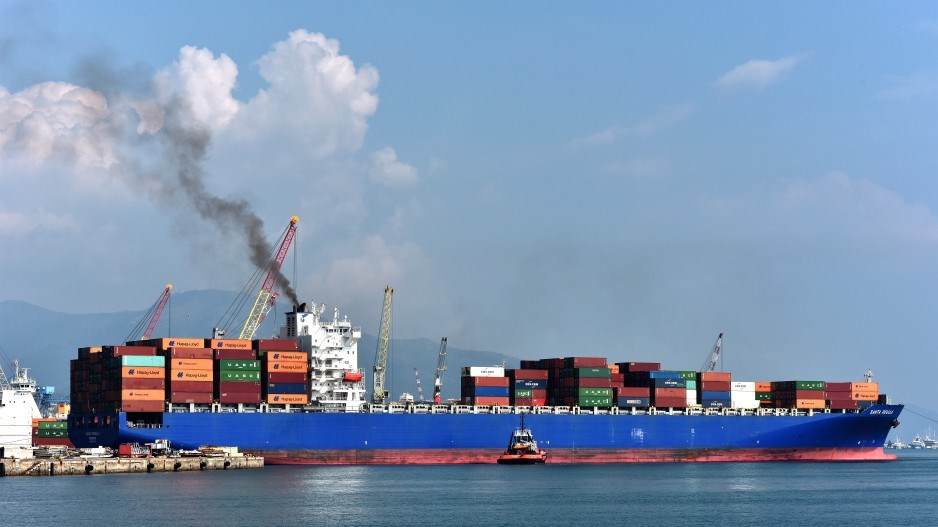It has attracted 15 new shipping companies to Vancouver over the last three years with a projected impact of more than $1.3 billion to B.C.’s economy, but the three-year Vancouver International Maritime Centre (VIMC) pilot initiative to establish the city as a global maritime hub appears to be running out the clock.
VIMC executive director Kaity Arsoniadis-Stein said government funding to keep the
“We are hoping by some miracle that the provincial government does something for us,” she said. “But if the province isn’t
The provincial Ministry of Transportation and Infrastructure did not
The VIMC is a three-year pilot program whose federal and provincial funding concluded in March 2018. According to a statement by Western Economic Diversification Canada, VIMC “met all requirements outlined in its funding agreement” but did not mention a chance for renewal.
Instead, federal officials are pointing to other programs - like Western Economic Diversification’s $1 million funding to the Association of British Columbia Marine Industries (ABCMI) last November, which is aimed at improving
“[Western Economic Diversification] makes strategic investments in initiatives that enhance and strengthen the economy of western Canada,” a statement from the federal department said. “… While [Western Economic Diversification] does not have a program that specifically
In addition, Transport Canada spokesman Simon Rivet outlined several efforts from Ottawa aimed at boosting Canadian players in the global shipping and trade sector. These include the $2 billion National Trade
“To date, 39 projects have been approved for funding, with the Government of Canada contributing more than $800 million.”
Rivet added that a third call for proposals is now underway.
He said more than $247 million has been committed to 12 projects in B.C., seven of which are in the Vancouver area.
She noted that while Vancouver remains North America’s most diversified port, investment focus has been on goods movement through the port. VIMC estimates this activity is valued at about $3 billion across Canada.
But she pointed out that major international shipping hubs like London, Singapore and Oslo offer far more: an “upper stream” cluster of business activities associated with shipping, such as ship management, brokerages, research and development, chartering, maritime law, ship finance, insurance and technology, that VIMC estimates could be worth up to $20 billion if Canada attracted a significant concentration of those businesses.
Such a hub would allow Vancouver to profit not only from ships that make their way here, but also from shipping routes all over the world.
“We put billions into infrastructure development to facilitate the throughput, but we are not playing in the top part, the business activities portion of the pyramid,” said Arsoniadis-Stein.
To reverse the trend, she said Vancouver needs to attract more ship owners. She cited examples such as Panama, Bermuda and the Marshall Islands that have successfully lured owners away from established hub cities by offering a flat tonnage tax for vessels instead of taxing shipping revenue.
“Our income taxes are enshrined in legislation,” Arsoniadis-Stein said. “Income off ships trading globally do not attract Canadian taxation. That’s how you can compete with Hong Kong, Singapore, Oslo, Cyprus, Rotterdam.… We need to attract the ship owners.… When you bring them in, the rest will follow in. That’s how you build a hub.”
VIMC has helped land several big players to establish shipping-related operations in Vancouver. Perhaps chief among them was the announcement last July that Singapore-based China Navigation Co. –
The multinational conglomerate, which employs 136,000 staff worldwide and has a market cap estimated at US$69
In 2017, Monitor Deloitte chose the city as one of five global marine hubs




